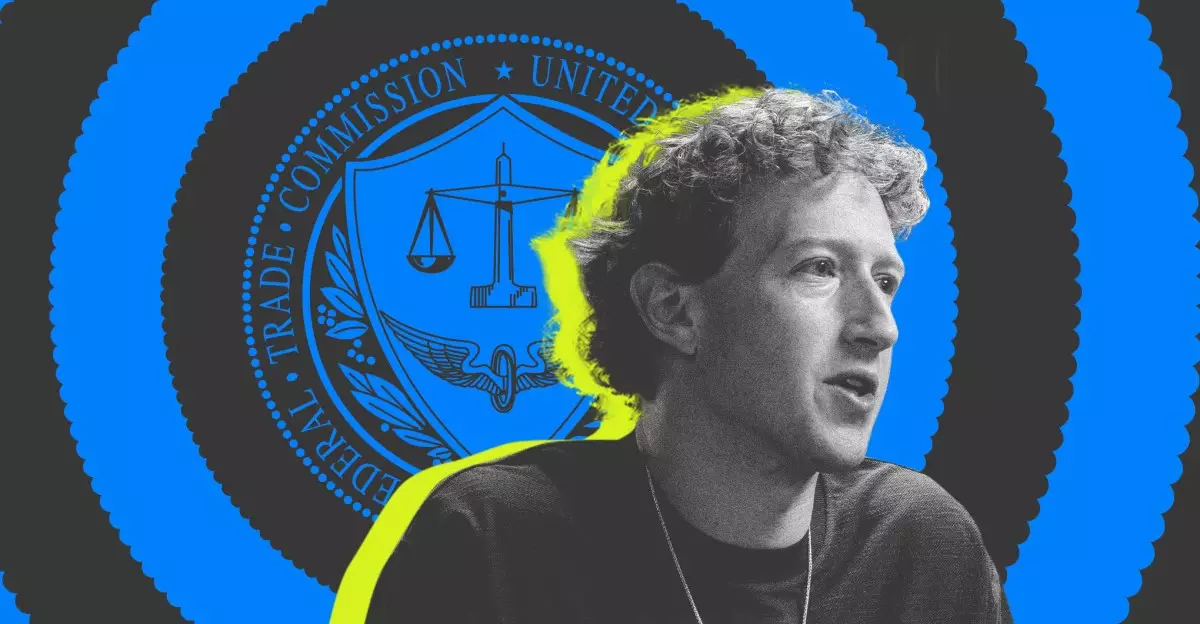Meta, the tech behemoth formerly known as Facebook, stands at a pivotal point in its trajectory as it faces scrutiny in an antitrust trial that could reshape its very foundation. The technology and decisions that brought Meta to its current stature were not simple or straightforward. Instead, the company’s history is riddled with pivotal decisions and countless forks in the road—each capable of leading to radically different outcomes. CEO Mark Zuckerberg’s recent testimony in the courtroom laid bare some of these drama-filled moments that could have led to a very different Meta. Whether it was contemplating a spin-off of Instagram, considering a purchase of Snapchat, or even fantasizing about scrubbing user connections entirely from Facebook, these ideas showcase a complex figure wrestling with both ambition and anxiety.
Despite claims of fluidity in the digital space, Zuckerberg’s reflections indicate that fear of stifling competition drove many of his historic decisions. The Federal Trade Commission (FTC) is probing Meta’s acquisitions of Instagram and WhatsApp, suggesting these were attempts to eliminate potential threats. But Zuckerberg views this narrative as oversimplified, arguing that the landscape is far more intricate than a mere competition of firms. This tension between leadership vision and regulatory perspectives points to the gnawing issue of monopoly power in the tech industry. The trial unearths the struggles of a leader finding their footing in an uncharted digital age while trying to stave off alleged unfair practices.
Imagined Realities: What If Meta Took Different Paths?
As Zuckerberg’s courtroom discourse unfolded, it became evident that the slider of fate could have easily shifted. He mused on what could have transpired had then-Snapchat CEO Evan Spiegel accepted a $6 billion offer back in 2013. In an alternate timeline, Meta could have integrated Snapchat into its portfolio, potentially transforming the platform into something unrecognizable today. By scaling up Snapchat at an earlier stage, Meta might have evolved its business model and user engagement in radically different ways. This raises the essential question: would more acquisitions lead to a richer digital ecosystem, or would they further entrench monopoly behavior?
One cannot ignore the chilling thought of Zuckerberg considering a drastic reset of Facebook by wiping user friend lists. There lies a disturbing paradox in this idea: amid fears of losing users, the possibility of starting fresh was appealing. However, this vision risks destabilizing the very social fabric that forms the bedrock of user engagement. The contemplation was not merely about enhancing user experience but a strategic counter-action against stagnation in interactions. The inherent concern here is whether the answer to fears about user disengagement lies in radical change or simply within the ongoing evolution of user preferences.
The Digital Duel: Meta vs. Competition
Zuckerberg’s insistence on defining market competition raises substantial concerns about the degree to which he fully recognizes the landscape of social media. The FTC’s efforts to elucidate a well-defined market structure focused on “personal social networking services” only scratches the surface of a much larger competitive framework. While it’s true that TikTok, YouTube, and iMessage may seem like contemporaneous threats, the digital era’s fluidity means that new entrants could reshape competition overnight.
The notion that Meta’s towering position has enabled it to amplify its advertisement load—as users have few alternatives—is alarming. For users accustomed to Meta’s brand of content tailored to their preferences, the blurring lines between ads and organic content may represent the epitome of a consumer’s complacency. Zuckerberg’s hinted aspirations to create ad-only feeds speak not only to the psychological contract with users but also anchor the conversation around data monetization and consumer choice in an evolving landscape.
The Ethics of Tech: Striking a Balance with Innovation
The ethical implications of Meta’s choices reverberate throughout the industry. Personal data collection, user engagement metrics, and strategies to enhance profitability open Pandora’s box in the quest for consumer loyalty. While Zuckerberg has expressed confidence that Meta’s acquisitions have enhanced the experiences of users, one must critically evaluate whether such expansions serve the community or foster dependency on singular platforms.
Zuckerberg’s courtroom musings unveil that while some decisions may have been driven by mythical fears of competition, they also tap into a broader discourse on corporate stewardship. The balance between innovative growth and ethical responsibility remains delicate. Can Meta thrive while addressing concerns about excessive power and user vulnerability? Or will it remain ensnared in a self-constructed web of its own making?
Meta’s evolution, underscored by vital decisions and speculative pathways, beckons the tech world to ponder its future. As the courtroom drama continues, it can reshape both the company and the digital landscape, revealing whether innovation can exist harmoniously alongside accountability and transparency.


Leave a Reply
You must be logged in to post a comment.